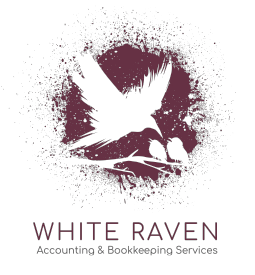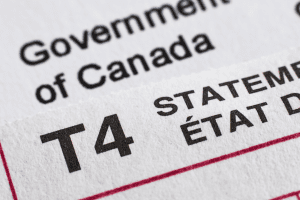Introduction
Navigating corporate taxes in Canada can feel overwhelming for business owners in Canada, but understanding the basics is crucial for staying compliant and avoiding costly penalties. Corporate taxes are more than just an obligation—they’re a key part of ensuring your business operates within Canadian law while contributing to public services.
Whether you’re filing for the first time or looking to refine your tax strategy, knowing what corporate taxes are, how to file them, and when they’re due is essential. In this guide, we’ll break down the fundamentals of corporate tax filing in Canada, share practical steps to streamline the process and highlight important deadlines you need to keep in mind. Let’s simplify corporate taxes so you can focus on running and growing your business.
What Is Corporate Tax in Canada?
Corporate tax is a levy imposed on the income or profit earned by incorporated businesses operating in Canada. These taxes play a vital role in funding public services, infrastructure, and programs that benefit Canadians. If your business is incorporated, you are required to file corporate taxes, regardless of whether you made a profit or experienced a loss during the fiscal year.
Who Pays Corporate Taxes?
Corporate taxes apply to all incorporated businesses in Canada. This includes small businesses, large enterprises, and Canadian-controlled private corporations (CCPCs). It’s important to distinguish between incorporated businesses, which must file corporate taxes, and unincorporated ones, such as sole proprietorships or partnerships, which report income through personal tax returns.
Federal and Provincial Tax Rates
In Canada, corporate taxes are divided into two components:
- Federal Corporate Tax: The base federal tax rate for corporations is currently 15%, but small businesses classified as CCPCs may qualify for a lower rate of 9% on the first $500,000 of active business income.
- Provincial and Territorial Taxes: In addition to federal taxes, businesses are required to pay provincial or territorial taxes. Rates vary by region, so it’s essential to understand your local obligations. For example, Alberta has one of the lowest provincial tax rates, while Quebec’s rates tend to be higher.
Taxable Income and Deductions
Corporate taxes are calculated based on your taxable income, which is the net income earned by your business after subtracting eligible expenses and deductions. Common tax deductions include:
- Salaries and wages paid to employees.
- Office rent and utilities.
- Equipment purchases.
- Marketing and advertising expenses.
Taking advantage of these tax deductions can significantly lower your taxable income, reducing your overall tax liability.
Understanding the basics of corporate tax ensures your business complies with Canadian law while allowing you to make informed financial decisions. Next, we’ll cover how to file corporate taxes step by step.
How to File Corporate Taxes in Canada
Filing corporate taxes in Canada may seem complex, but breaking it down into manageable steps can simplify the process. Whether you’re handling it yourself or working with a professional accountant, understanding the key elements of filing corporate taxes ensures your business remains compliant and avoids penalties.
Step 1: Gather The Required Financial Information
The first step in filing corporate taxes is ensuring all your financial records are accurate and up-to-date. This includes:
- Income Statements: A summary of your business’s revenues and expenses.
- Balance Sheets: A snapshot of your assets, liabilities, and equity.
- Expense Records: Detailed logs of deductible business expenses, including receipts and invoices.
- Payroll Records: Documentation of salaries and wages paid to employees.
Organized and accurate bookkeeping is crucial at this stage. If your records are incomplete or disorganized, it may result in errors when calculating taxable income, potentially leading to penalties or audits. Using accounting software like QuickBooks or Xero can make record-keeping more efficient.
Step 2: Calculate Taxable Income
Taxable income is the foundation of your corporate tax calculation. To determine this, start with your business’s gross revenue and subtract all eligible deductions and credits. Common deductible expenses include:
- Operating Costs: Rent, utilities, and maintenance for your business premises.
- Employee Salaries and Benefits: Payments made to employees and contributions to their benefits plans.
- Professional Fees: Costs for services like accounting, legal advice, or consulting.
- Depreciation: Write-offs for the decline in value of business assets, such as machinery and vehicles.
- Marketing and Advertising: Expenses incurred to promote your business.
Canada also offers various tax credits, such as the Scientific Research and Experimental Development (SR&ED) tax credit, which can further reduce your tax liability. Ensure you research applicable credits for your business or consult an accountant to maximize savings.
Step 3: Complete the T2 Corporate Tax Return
All incorporated businesses in Canada must file a T2 Corporate Tax Return annually, even if they have no tax payable. The T2 form includes several schedules to provide detailed information about your business finances. Key schedules include:
- Schedule 1: Adjusts your net income for tax purposes by adding back non-deductible expenses (e.g., fines, penalties) and subtracting deductible amounts.
- Schedule 125: Reports your business’s income statement, including revenues and expenses.
- Schedule 100: Details your balance sheet information.
Filing the T2 accurately is critical to avoiding errors that could trigger an audit. Many business owners prefer to have a CPA handle this step to ensure compliance.
Step 4: File Your Return Online or With a Professional
In Canada, corporate tax returns can be filed electronically using the Canada Revenue Agency’s (CRA) online services. Electronic filing is secure, efficient, and allows for faster processing of refunds, if applicable.
Alternatively, working with a professional accountant ensures your taxes are filed correctly and on time. An experienced CPA can also identify opportunities to optimize your tax savings and minimize errors in your filing.
Step 5: Pay Any Taxes Owed
If your business owes taxes, payment deadlines depend on your corporate structure and fiscal year-end:
- Canadian-Controlled Private Corporations (CCPCs): Taxes are due three months after the fiscal year-end.
- Other Corporations: Taxes are due two months after the fiscal year-end.
Payments can be made electronically through your financial institution, via the CRA’s My Business Account portal, or by mail with a remittance form. It’s critical to pay on time to avoid late penalties and interest charges.
Filing corporate taxes requires a combination of preparation, accuracy, and awareness of deadlines. In the next section, we’ll cover the specific filing deadlines in detail to help you stay compliant
When Are Corporate Taxes Due in Canada?
Understanding corporate tax deadlines is essential for avoiding penalties and staying compliant with Canadian tax regulations. Filing and payment deadlines vary depending on your business structure and fiscal year-end, so it’s crucial to stay informed and organized. Below, we’ll break down the key deadlines and explain what happens if you miss them.
Corporate Tax Filing Deadline
In Canada, all incorporated businesses are required to file a T2 Corporate Tax Return. The filing deadline is:
- Six months after the end of your fiscal year.
For example, if your business’s fiscal year ends on December 31, 2024, your corporate tax return must be filed by June 30, 2025.
It’s important to note that even if you don’t owe any taxes, you’re still required to file your T2 return to comply with CRA regulations. Missing this deadline can have consequences similar to missing the personal tax deadline, including penalties and interest charges.
Corporate Tax Payment Deadlines
The deadline to pay any taxes owed depends on your corporation type:
- Canadian-Controlled Private Corporations (CCPCs):
- Taxes must be paid within three months after the end of the fiscal year.
- This extended deadline is a benefit for small businesses classified as CCPCs.
- Other Corporations:
- Taxes are due two months after the fiscal year-end.
In both cases, failing to meet these deadlines can lead to significant late fees and interest, which can quickly add up and strain your business’s finances.
Tips for Simplifying Corporate Tax Filing
Filing corporate taxes doesn’t have to be overwhelming. By adopting a few key strategies and staying proactive throughout the year, you can simplify the process and reduce the risk of errors. Below, we share practical tips to make corporate tax filing more manageable for your business.
1. Keep Your Financial Records Organized Year-Round
The foundation of stress-free corporate tax filing is accurate and organized financial records. Make it a habit to:
- Record all income and expenses as they occur.
- Store receipts and invoices securely, either digitally or in a well-organized filing system.
- Regularly reconcile your bank statements with your accounting records.
Staying on top of your financial documentation throughout the year will save you time and reduce stress when it’s time to prepare your T2 Corporate Tax Return.
2. Use Accounting Software
Investing in reliable accounting software can streamline bookkeeping and make tax filing much easier. Tools like QuickBooks, Xero, or FreshBooks allow you to:
- Automate invoicing and expense tracking.
- Generate financial statements required for tax filing.
- Stay on top of due dates with built-in reminders.
If you’re unsure which software is best for your business, consulting with an accounting professional can help you make the right choice.
3. Separate Business and Personal Finances
One of the most common pitfalls for small business owners is mixing personal and business expenses. Open a dedicated business bank account and credit card to ensure a clear distinction between the two. This not only simplifies tax filing but also protects your business in the event of an audit.
4. Know Your Deductions
Taking full advantage of eligible deductions can significantly reduce your taxable income. Common deductions include:
- Salaries and wages paid to employees.
- Home office expenses (if applicable).
- Marketing and advertising costs.
- Vehicle expenses used for business purposes.
Keep detailed records for each deduction, including receipts and mileage logs, to substantiate your claims.
5. Work With a CPA or Tax Professional
While it’s possible to file corporate taxes on your own, working with a professional accountant can save you time, money, and stress. A CPA can:
- Ensure your return is accurate and compliant with CRA regulations.
- Identify deductions and tax credits you may have overlooked.
- Represent you in the event of an audit.
Collaborating with a professional allows you to focus on growing your business while leaving complex tax matters to the experts.
6. Plan for Tax Payments
Avoid scrambling to pay your taxes by planning ahead. Review your financial statements regularly to estimate how much you’ll owe and set aside funds in a separate account. This proactive approach ensures you have enough cash on hand to meet your tax obligations.
Conclusion
Filing corporate taxes in Canada doesn’t have to be a daunting process. By understanding what corporate taxes are, following the correct filing procedures, and adhering to deadlines, you can ensure your business remains compliant and avoids unnecessary penalties.
Here’s a quick recap of the key points we covered:
- What Corporate Taxes Are: Corporate taxes apply to incorporated businesses in Canada and are calculated based on taxable income, with both federal and provincial components.
- How to File: The process involves gathering accurate financial records, calculating taxable income, completing the T2 Corporate Tax Return, and filing online or with the help of a professional.
- Key Deadlines: Filing is due six months after the fiscal year-end, with payment deadlines varying based on your business type.
Staying organized throughout the year, using the right tools, and working with an experienced accountant can make corporate tax filing a much smoother process. If you’re ready to streamline your corporate taxes or need expert advice, White Raven Accounting is here to assist. Contact us today to ensure your business stays compliant while maximizing tax savings.





